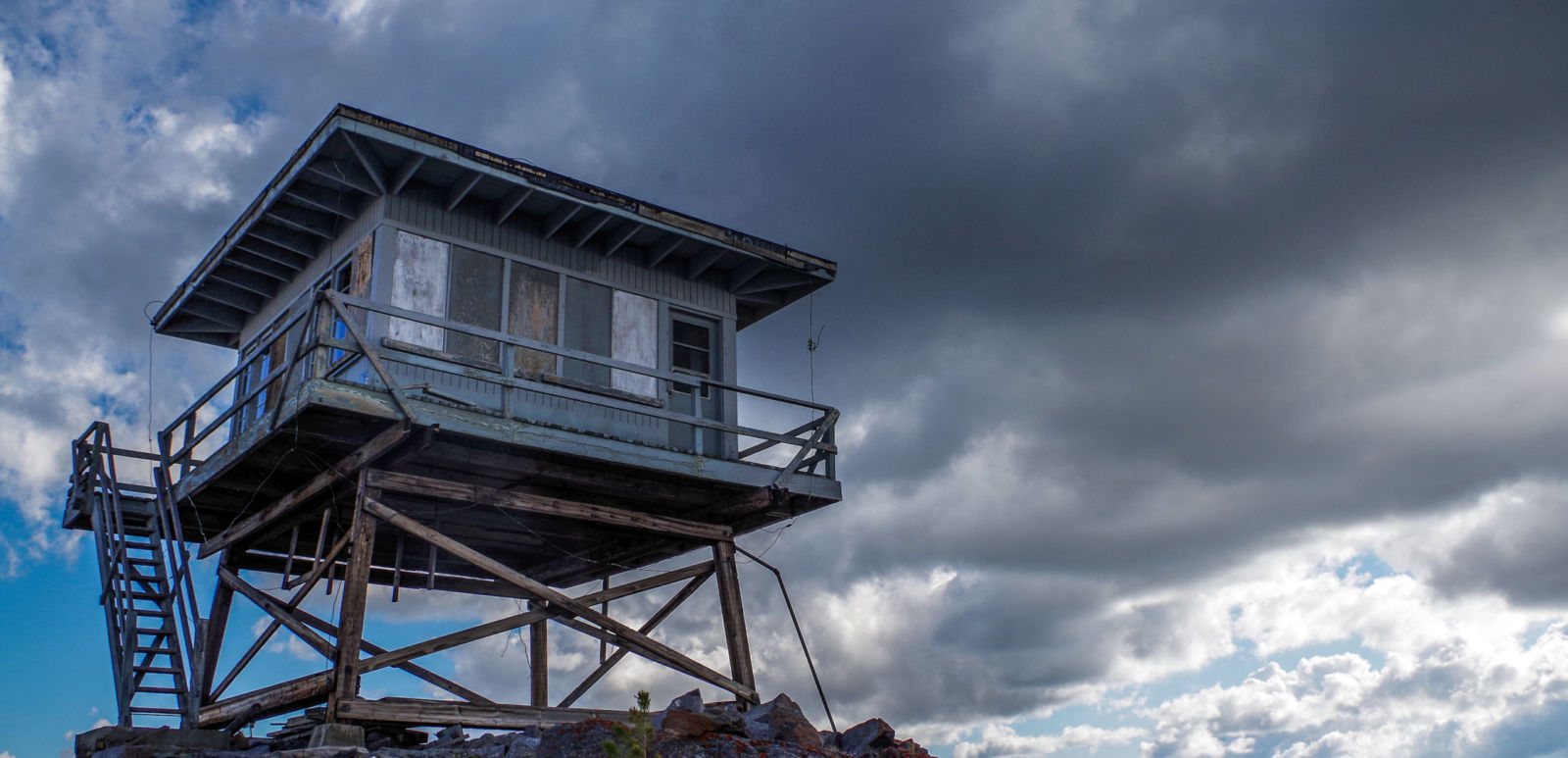In this Fifty Grande Community Spotlight we meet U.S. Forest Service River Checker, Owen Baertlein.
We’ve all had that yearning once or twice (or 50 times) to leave it all behind and completely disconnect from the world. Usually this is a fleeting thought. The more adventurous among us might commit to something that passes for ambitious — going without Netflix for the week or untethering from the phone before getting into bed. Owen Baertlein is a professional disconnector for real at his summer gig: He’s a U.S. Forest Service River Checker which means he lives in a gigantic national forest. Originally from Jamestown, Rhode Island, he’s currently on his second season in the Salmon-Challis National Forest, in the Frank Church-River of No Return Wilderness at Indian Creek Guard Station — ”I know, a lot of names,” he said recently over email — in Idaho.
Where the heck is that?
“It’s hard to give you an area because the nearest town is miles away by air, but we’re west of Challis and north of Stanley. It’s a unique little location right on the Middle Fork of the Salmon River. It’s renowned for the incredible whitewater rafting and kayaking challenges.”
In this “Fifty Grande” Community Spotlight we talk to him about forest life without power tools (or power anything), the major difference between a National Forest and a National Park, celeb sightings and much more.
Fifty Grande: What’s your position?
Baertlein: There’s a bunch of different titles that we go by, but my federal title is river checker at Indian Creek Guard Station. A lot of people see someone with a tan shirt and a tree patch and automatically assume we’re rangers, so that’s usually how we refer to ourselves, but the federal government has done a pretty good job of keeping my ego in check title-wise.
How did you end up in that job?
I started exploring out in the West with my dad when I was a kid. He took my brother and I on a few hikes into the Grand Canyon, which eventually led to me starting with the U.S. Forest Service on the Kaibab National Forest as a recreation technician. Again, that’s the official title; I liked to think of myself as a breaker and maker. We took old stuff down, built new stuff. I worked in that position for two years and really came to love working outdoors out West, especially in northern Arizona. Right around when I turned 21, I figured it was time to start branching out. And I applied for this job.
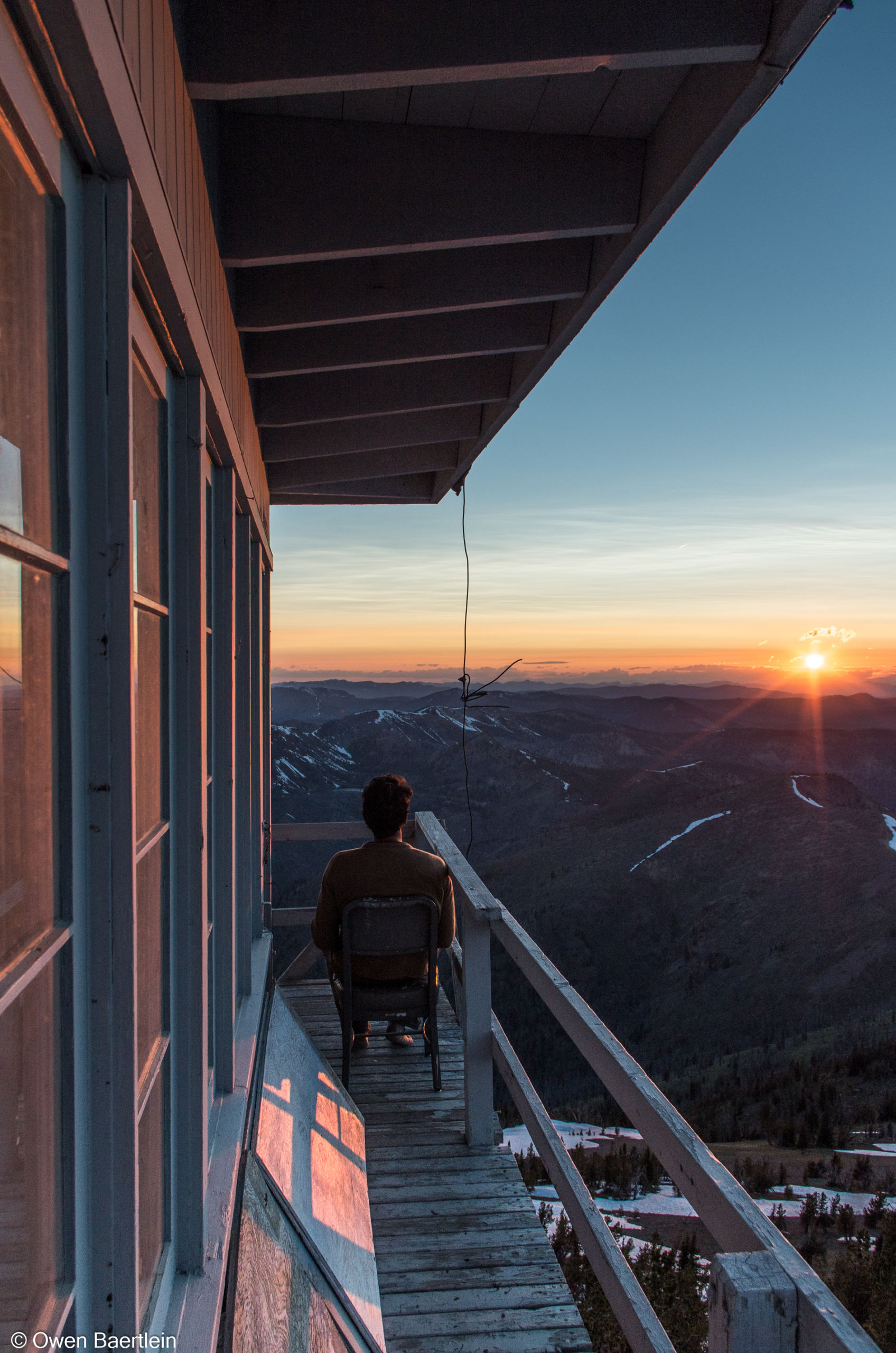
What do you do at this gig?
Basically, we run the river permitting system along with another guard station 25 miles upriver from us. The Middle Fork of the Salmon is one of the country’s most popular whitewater rafting rivers, so it gets pretty busy. We keep people on the river that should be and off that shouldn’t. If any of your readers have run the Middle Fork in the last two years, chances are they’ve seen my signature on their river permit.
Who shouldn’t be on it? I’m guessing people without permits, but anyone else?
Yeah, it’s basically just that. To float the river, you need a permit from the USFS and appropriate equipment, which we usually check. Not now with COVID; we just trust them. Anyone on the river without a permit is fined. From what I know it’s a pretty hefty one.
What’s it like there?
We’re pretty isolated and USFS supply flights are rare. We’re also responsible for maintenance of our five-building compound in adherence with the Wilderness Act of 1964. This means we have no power tools, no motors and no wheels. Drills are hand drills. Gear is hauled around in sleds. The only exception is the airstrip that we maintain. It was created before 1964 and therefore grandfathered in. We’re also, obviously, the Forest Service’s public point of contact out here. Plenty of folks come by the office to chat or just shoot the breeze, though obviously less so this year than last.
It would be irritating if you, in part, took this career path to be in the wilderness and away from people, and then you find that one of the things that people really want from you once you’re in this gig is to shoot the shit. Or do you enjoy people stopping by?
Well, I didn’t take the job to be isolated from people. It was more to have a cool and unique job during a time in my life when I can afford to do that. Mostly, the folks who stop by have been alone for the last couple days save a few other folks in boats with them, and they’re just looking for a quick chat. The vast majority of the people that stop in are in great spirits, and it’s hard to not like talking to them. But this is America, and there’s always one or two each season that just want to complain about the government, and I’m the guy with the tree patch, so…
This is a dumb question, but how do you get Wi-Fi?
Wi-Fi is only in the office. We have a solar battery and three or four solar panels. The system powers an energy-efficient tablet (no computer tower), two electrical outlets and an office radio. As well as the router. The Wi-Fi is satellite, so stormy days are tough.
What do you have to do to get basic supplies? Everyone in the country was having a meltdown back in March trying to get toilet paper and hand sanitizer. How would you get those if you needed them?
Basic supplies are either flown in on Forest Service flights or brought down the river by River Patrol. We haven’t had too much to worry about in that regard. The basics are pretty well stocked. A lot of what the Forest Service ends up with is military surplus, so we rarely have shortages of anything basic.
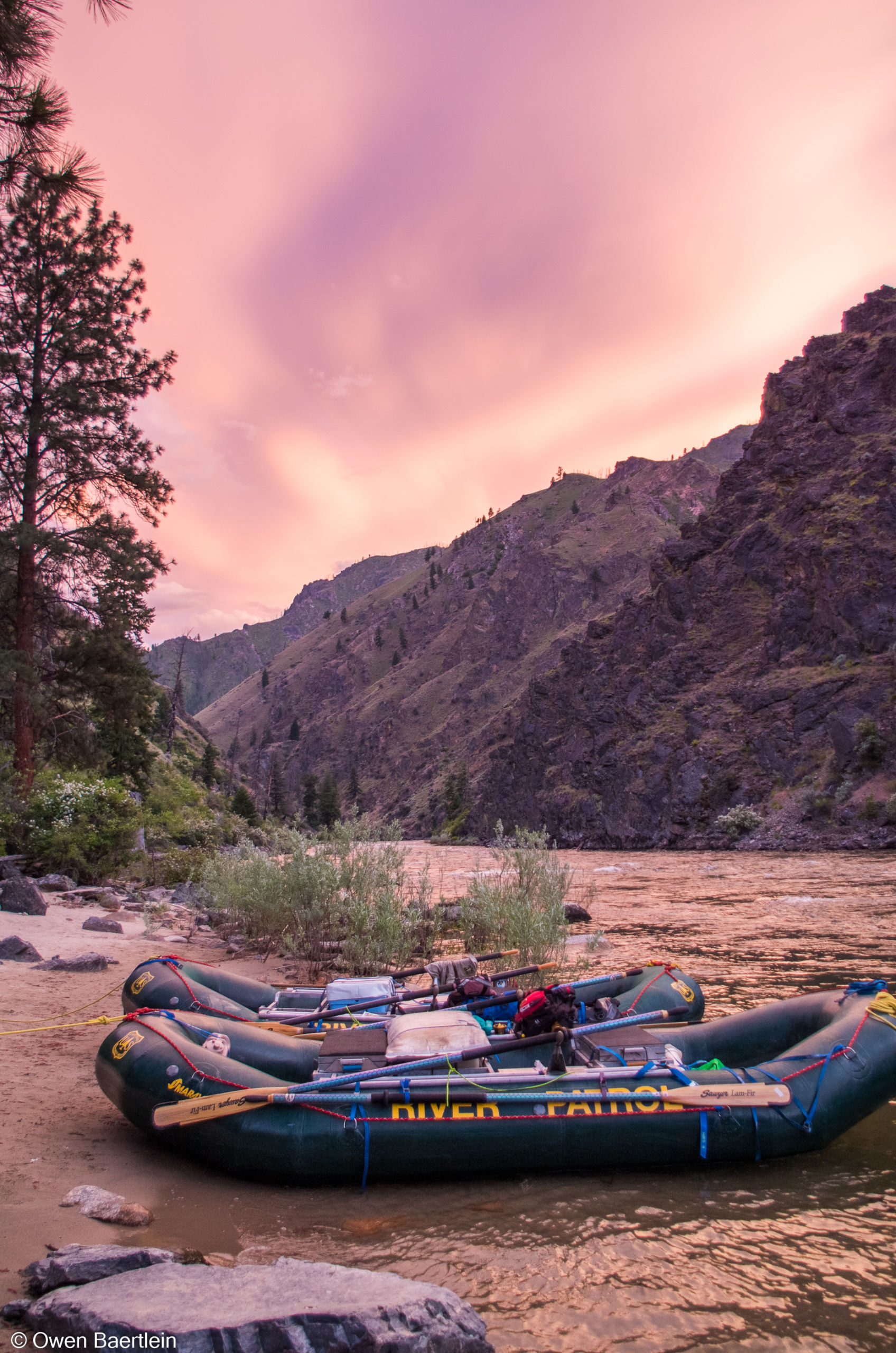
What happens if there’s an emergency?
We’re one of the few stations on the river with a radio and a sat-phone. It’s rare, but people do get hurt on the river, sometimes pretty badly. In cases like that, we work with rafters, dispatch and Custer County Sheriff’s Office if necessary to get folks the help they need. Again, it’s the wilderness. A lot of people don’t realize a hospital is hours away on a good, clear-sky day.
What’s the worst injury you’ve had to deal with?
Injuries are honestly pretty rare. The people who run this river are highly experienced, which makes our jobs a lot easier. Last season we had a group who flipped a raft and one guy broke a rib or two. But they handled it on their own and got him flown out at an airstrip downriver.
How has COVID affected your job other than fewer visitors?
The good thing about working here is that that’s really the only effect COVID can have. We’ve moved most of our campsite assigning and contact with river outfitters online, obviously. But, otherwise it’s a relatively normal season.
What’s your normal workday like?
This summer, a lot of the work we do is compound maintenance. That’s simply because the majority of the permitting system has moved online due to the coronavirus. In the last few days, I’ve been working on maintaining and repairing the fence line. That means cutting new rails and posts from dead and downed trees. I’ve been fixing the broken propane-powered oven in my cabin and updating signage so people know the station is staffed. A lot of people have been peeing in plain view of my cabin recently.
More so than usual?
Yes. It used to never happen. I think the main cause of it is that a lot of people think the station is still shut down because of COVID. We’ve started putting up signs to let people know that the cabins are occupied by living, breathing people. We’ve had some folks peek in the windows, which is spooky.
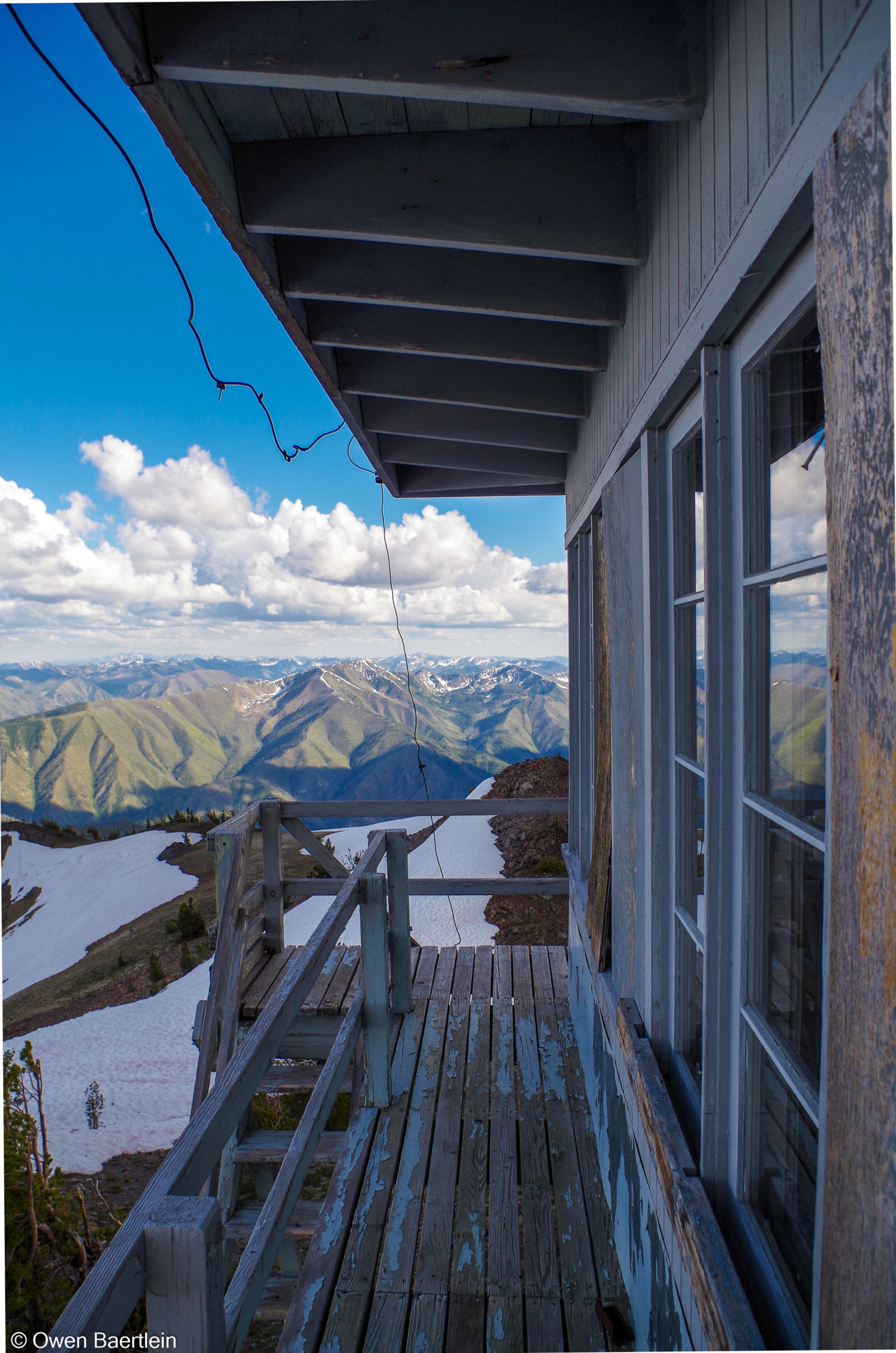
What do you do when people look in?
I usually just give them an old-man-type “get off my lawn” yell.
Do you find it challenging to be isolated in the forest?
Honestly, the job isn’t as isolated as you’d think it would be, especially around this time of year. The vast majority of rafters are pretty friendly. Plenty of them come up from the beach to take a look around or say hello. They’re usually looking for some company after a few days on the river. Even Laura Bush came down the river last year. Didn’t say hi, though. We also have other Forest Service personnel coming in, trail crews and river patrol and all. Last summer, I was one of three guys living in one cabin. This year the staffing has been cut way down (just two checkers on-station). But I still have a tough time feeling lonely. It’s beautiful country out here, and being alone is far from the worst way to see it.
You mentioned the loneliness can be tough. Why do a second season, then? How do you cope with loneliness while in the forest?
The loneliness can be tough, but the experience is more than worth it. And there’s almost always at least one other person out here with me. Last year, there were six of us total. Two rangers, three trail crew and one Shoshone interpreter. So things could get rowdy. Overall, as long as you keep yourself on the bright side, there isn’t too much bad out here.
Have you seen any celebs besides Laura Bush the past two seasons?
None besides Laura Bush. But we do have a kayak hanging in the office that is supposedly from Jimmy Carter’s Secret Service detail. He ran the river once. Apparently, one of his detail decided he was going to try to run the Middle Fork in a hard-shell kayak. Maybe the guy could protect the president, but whitewater kayaking is a whole different deal. They stopped by here and ditched the kayak, and it’s been here ever since.
What’s the most overrated part of park life?
First off, let’s get one thing straight. This here’s a National Forest, which is infinitely better than a National Park because you get to do things. For instance, you can pan for gold in the river. Can you do that in Yosemite? I didn’t think so.
(Jesus, relax.) Okay, what’s overrated about forest life?
I’d have to say the one overrated part that people love to talk about is not having power. A lot of people talk about how they’d just love the experience of living in a log cabin without the distraction of electricity. These people will usually be going home to electricity in a week. Yeah, well, the distraction of a microwave would be pretty cool. Lot of folks out there taking microwaves for granted. Light switches too. It takes me about six minutes to light the kitchen/living area of my cabin. Once I do, it gets hot, because the lights are all propane lanterns.
What about the most underrated?
The most underrated part has to be days off. Most rafters or pilots that stop in always tell us how lucky we are to work here. But I live here too. There are nonstop trails and some absolutely wild destinations. I didn’t spend much time hiking last year, but I plan on it this year. We work an eight-on-six-off schedule, and there’s a lot you can get up to with six days off out here. We’re nestled in the heart of the Salmon River Mountains. There’s a ton of history around here to explore, from old mines to abandoned lookout towers. Even if you’re not a hiker, it’s got to be one of the best places in the world to have a day off. If I’m not working and don’t feel like sweating, I can just sling up a hammock.
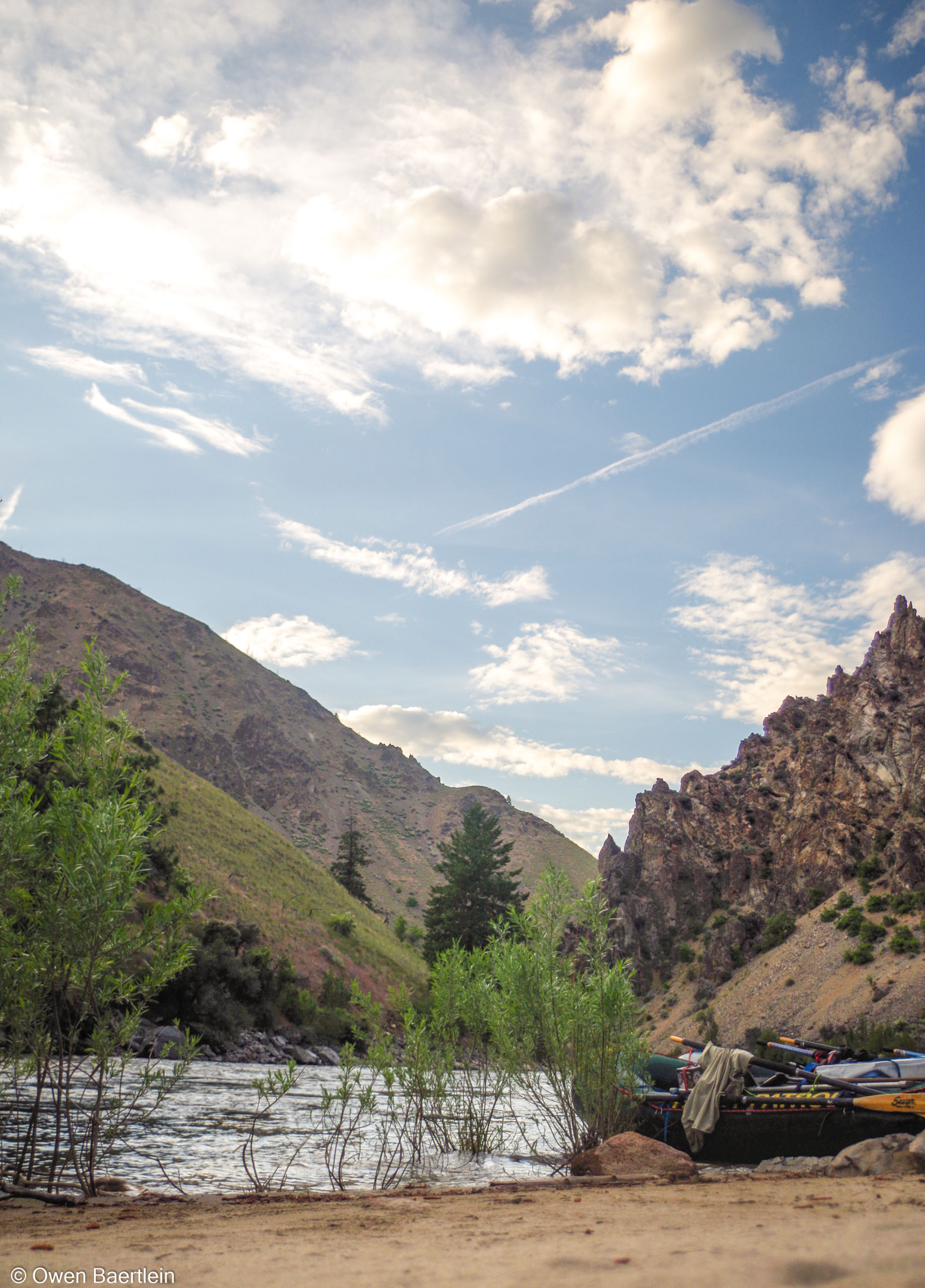
You said you’re on an eight-on and six-off schedule. I’ve actually never heard of something like that. What’s the most ambitious excursion you’ve taken in the forest with six days off?
I think the most ambitious six-off I’ve had was probably the yearly river trip each ranger gets. The FS has us head down the river with River Patrol. That’s pretty great because you get a free river trip plus a per diem and regular pay. Those fellas are damn good cooks.
If you don’t mind me asking, how does one try to date in the forest?
I don’t. What am I gonna do, borrow Dad’s Ford and drive into town for a date? I’m 25 miles by foot from the nearest road. I don’t give a shit what The Proclaimers sang about, nobody’s worth that.
What are the most fulfilling or best things to do in your forest?
The best part is you’re almost entirely self-sustained. Of course, the mail plane flies in groceries once a week by request, but besides that, we maintain or build everything out here. If my door is hung wrong, I’m the one who fixes it. Want to garden? I have to throw together a garden bed out of old wood and make sure those dastardly squirrels don’t get into it. If my oven is on the fritz, I’m the guy. I’m not the guy who fixed it yet, but I’m down to kicking and swearing, so hopefully I’ll figure it out soon. But there’s really nothing better knowing that you’re responsible for everything that works out right, and it’s a pretty sweet learning experience too.
What’s your next U.S. trip planned?
Hell, the next U.S. trip planned is the one to get me back to Maine at the end of my season. After that drive back, I have one more cross-country cruise to Salt Lake City after I graduate, and I think at that point I’ll be at eight or nine times criss-crossing the lower 48. But if we’re talking pleasure cruise, I’ve also wanted to go east to west via West Virginia and the Gulf of Mexico. That was originally my plan for this summer. When the pandemic really hit in full I thought it would be safest to stick to the north. Which meant I had to go through Kansas again. Kansas is the “Go Ahead and Fall Asleep at the Wheel, It’s Straight for 500 Miles Anyways” State.
I’ve driven through Kansas a bunch of times and am always struck by how flat it is.
I’ve always loved traveling in the U.S. just because of how wildly different each region is, even between neighboring states. The enormity and beauty of the West and Southwest is unlike anything I’ve seen anywhere in the world. I don’t know where the next U.S. trip is going to be, but I’m really hoping it’ll be back here.
At “Fifty Grande” we talk a lot of inspiring people to get out and see parts of the country. Being from Rhode Island, what’s your favorite part of that region of the country? Parts that you didn’t really understand or know until you got out and visited.
My idea of Idaho before coming out here was that it was all flat and farmland. Kind of like Nebraska and the Dakotas, just drier. I took a hike up to a fire lookout tower on Big Baldy Peak. Being at the top of a 9600′ mountain in the heart of the Salmon Mountains with nothing but snowy peaks for miles has done plenty to change that. I remember sitting in the tower at night with one of the trail guys I lived with last season and watching a storm front move in from the north. You could see purple heat lightning stitching across thunderheads that looked like they were topping out at the edge of the atmosphere. Absolutely unreal.


